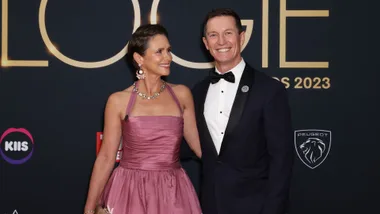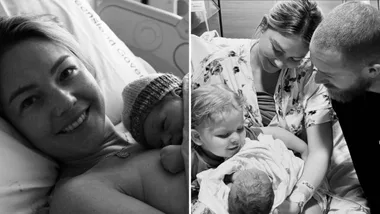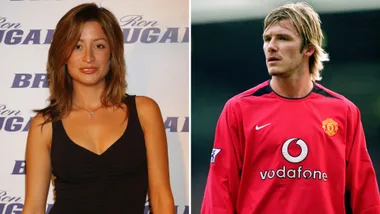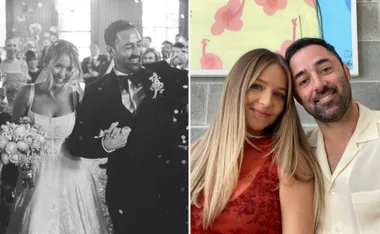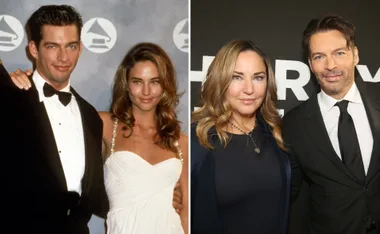Think of Eurovision and you’ll likely conjure up images of flamboyant, sequin-coated extroverts sashaying across the stage to catchy beats in a gloriously kitsch and camp celebration of pop music.
Which is why, at first glance, Australia’s 2016 representative, Dami Im, might not seem an obvious choice.
The 27-year-old singer is a self-confessed introvert who’d rather a quiet coffee than a glitzy cocktail.
A devout Christian, you won’t see her performing explicit moves in a raunchy outfit on stage, or stumbling out of a nightclub in the early hours. Indeed, Dami started out as a gospel singer before becoming an award-winning classical pianist in her teens.
Yet dig a bit deeper and you’ll realise that Dami is, in fact, the perfect Eurovision choice.
After moving to Australia from South Korea as a child, she worked hard to succeed at school and in music. Despite a prodigious natural talent as a pianist, Dami spent hours in her bedroom as a teenager recording herself singing pop songs in a bid to improve through sheer determination.
Three years ago, the then unassuming piano teacher overcame her nerves to win the Seven Network’s The X Factor. Her resulting fan base is fiercely loyal: they relate to her humble, uncontrived and down-to-earth nature, and her compelling story of rising from suburbia to stardom.
And most of all they love her music.
With her Queensland accent, a self-deprecating sense of humour and a love of cooking Korean food and cake-pops, Dami embodies the diversity of 21st-Century Australia.
Furthermore, her Eurovision song – Sound Of Silence – is anthemic yet profound; a modern lament on the personal disconnect between loved ones in our digitally connected world.
Eighteen years ago, Dami’s mother, Hae Yun Lee, an opera singer, and father Dong Eal Im, who ran a family business manufacturing computer parts, moved to Australia in a bid to give their daughter and her younger brother, Kenny, a better life.
Her dad would continue to work in South Korea to support the family, only reuniting with his family in Brisbane for a week at a time during school holidays. Meanwhile, her mum had to learn English, run a household and raise the children.
“Korea is polluted and grey,” says Dami, “and very competitive. Here, my parents found kids could be kids – they could play in the grass and didn’t have to study all the time. My parents were young and it was a big sacrifice to be separated, but they did it for us.”
Nevertheless, arriving at school as a shy nine-year-old with hardly any English was daunting.
“I remember coming to class and just not understanding anything,” Dami recalls. “But one day, I played the piano and everyone thought, ‘Wow, she’s good at something’. Because, up until then, they thought I was dumb. I got respect from it and then I became good [at piano] and started winning competitions.”
Watching cartoons and listening to music helped her to learn English. “I remember reading the sleeve of a Spice Girls CD and seeing the word ‘gonna’,” she says, laughing, “So I used that word in my next essay – [the teacher] had to explain that wasn’t right.”
Cemented in her role as “piano girl”, Dami never sang at school, instead playing accompaniment to the choir. Despite her extraordinary gift for piano, however, her real passion lay buried and unpolished.
“When I got into high school, I realised I didn’t want to play piano,” she says, “I wasn’t enjoying it anymore. I was confused.”
So, behind her bedroom door in Logan, south of Brisbane, Dami began focusing on her voice. “I’d listen to singers, copy them and record myself singing to backing tracks on my crappy laptop,” she says.
“I tried to hide it because I didn’t want my parents to know. Mum knew what I was doing, but she knew I’d be embarrassed about it, so we didn’t talk about it.”
After gaining high marks at school, Dami’s parents convinced her to study music at university before pursuing her singing.
“When I first said I wanted to be a singer, they were worried,” she says. “Now they’re excited [about Eurovision] – but mostly because they like showing off to their friends!”
In 2012 Dami married her childhood sweetheart Noah Kim, now a social worker, whom she’d met through church. She’d had a crush on him as a 13-year-old, but he’d always treated her like
a younger sister, she says, until he returned from compulsory national service in Korea, seven years later.
“He’s a confident person,” Dami says. “I don’t think there are many men who would feel so comfortable when their wife is doing well. During The X Factor he was very much ‘Dami’s husband’ and he left work for two years to support me.”
It was Noah who convinced Dami to audition for the show three years ago. “I’m not an extrovert – people assumed I was a contestant’s parent or friend or something,” she says, smiling. “I was terrified I’d be booed off the stage and it would be embarrassing.”
When it was her turn to stand as the last contestant before the jaded celebrity judges, shortly before midnight, she appeared endearingly awkward – until the moment she broke into Hero by Mariah Carey and blew everyone away.
Yet she didn’t let herself get carried away by the rapture. “[During the show], every night, people were off partying,” remembers Dami, “but I would be in my room, practising.” Her trademark conscientiousness paid off and she won the show.
Despite being part of the only family of Asian heritage in her primary school, Dami says racism wasn’t an issue growing up.
“Kids do pick up on any difference,” she says, “And people teased me because I couldn’t speak English very well. But generally the kids were more fascinated by me – they wanted to touch my hair.”
More recently, however, Dami has been the target of hurtful racist taunts.
“There are weirdos on social media and people saying things like, ‘Why don’t they send an Australian to Eurovision?’,” she says.
“I am Australian. And it feels great that I get to represent Australia, which is well known as a culturally diverse place where everyone is accepted the way they are.”
Her fans – also known as Dami’s Army – campaigned hard to help send her to Eurovision. “It’s a wide demographic, from young teens up to 70-year-olds,” she says. “I’m not the one they’ll see in sexy, raunchy outfits, so older people feel comfortable watching me.”
Dami says it’s faith, family and charity work that keep her grounded in a notoriously fickle industry.
“With all the ups and downs in this industry, I think it really helps knowing your values and having a firm belief about life and what’s important – and what’s not,” she says. “Your chart position can play with your head but I remind myself I am making songs to help people connect and use the talent God’s given me.”
Dami’s new album Classic Carpenters will be released on April 22.




